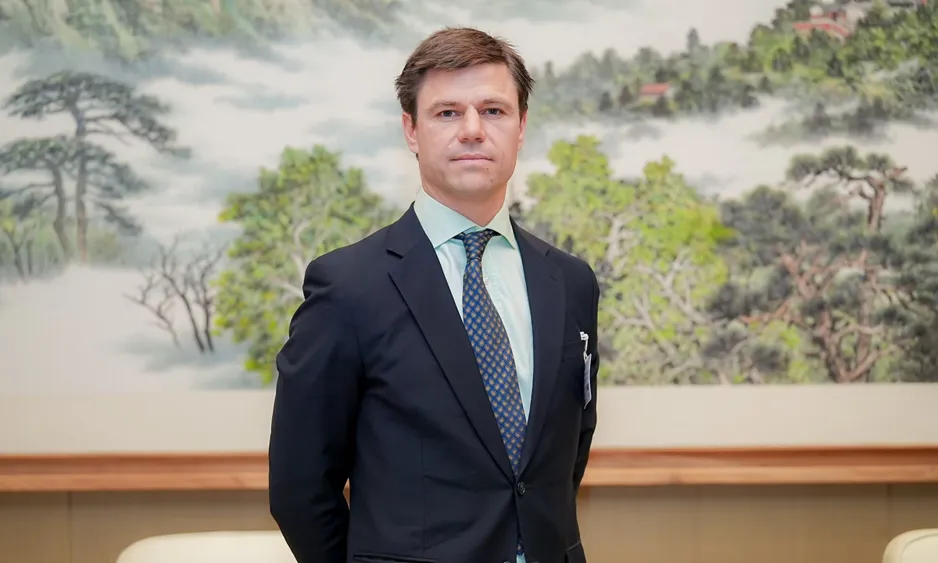China's Stable Policies Offer EU Firms Long-Term Certainty

China's stable policies offer significant predictability for European firms, according to Bernardo Mendia, Secretary General of the Portugal-China Chamber of Commerce and Industry. In an exclusive interview with the Global Times, he underscored the necessity of enhancing cooperation between China and the EU, particularly in the context of increasing global protectionism.
Mendia pointed out that amidst a backdrop of global volatility, China's policy consistency and increasing openness—exemplified by the implementation of nationwide pilot free trade zones and more streamlined foreign investment regulations—provide tangible stability for businesses. For European enterprises, this translates into predictability in critical operational areas such as manufacturing timelines, research and development, and access to green technology subsidies, coupled with access to a market of over one billion consumers.
In light of the upcoming 25th China-EU Summit, Mendia emphasized the need to protect multilateralism, especially as China and Portugal continue to develop their commercial ties. He highlighted the impressive growth in trade between China and the EU and identified Portugal as a key gateway for trade with Lusophone markets.
This year marks the 50th anniversary of diplomatic relations between China and the EU. Over the last five decades, the economic cooperation between the two has strengthened significantly, with bilateral trade increasing more than 300-fold, according to Wang Lingjun, head of the General Administration of Customs, during a recent press briefing.
Statistics reveal a substantial trade volume between China and the EU, with total trade in the first half of the year reaching 2.82 trillion yuan, approximately 389.66 billion dollars, representing a 3.5 percent year-on-year growth. This figure indicates an average daily trade exceeding 15 billion yuan, a stark contrast to the total trade value at the inception of diplomatic relations.
The EU now constitutes 12.9 percent of China's total foreign trade, reaffirming its status as the nation's second-largest trading partner. Mendia highlighted that the most compelling opportunities exist at the intersection of China's priorities—sustainability and high-quality consumption—benefitting Portuguese and other European companies.
However, Mendia also addressed the immediate impacts resulting from the rising tide of global market instability, particularly the US's implementation of a 30 percent tariff on EU imports. He expressed concerns regarding the trending unilateral protectionism primarily initiated by the US, which he believes destabilizes global supply chains and adversely affects consumers.
Mendia argued for a rules-based multilateral trading system, emphasizing its economic importance and urging China and the EU as major trading blocs to jointly uphold the World Trade Organization's dispute resolution mechanisms. He stressed the need for collaboration to develop green and digital trade corridors to counteract economic fragmentation.
In light of global trade protectionism and economic challenges, he claimed that enhancing cooperation between China and the EU serves both parties' fundamental interests. Jian Junbo, director of the Center for China-Europe Relations at Fudan University, echoed this sentiment, positing that such collaboration solidifies economic foundations and enables coordinated responses to global challenges.
Despite various external pressures, trade and investment between China and the EU demonstrate considerable resilience and inherent momentum. Jian articulated the necessity for both sides to cultivate a more open market landscape, reduce non-economic obstacles, and build mutual trust, particularly in areas like climate change, green transitions, and the digital economy where both share aligned interests.
Read These Next

LME Metal Futures End Day Lower Across the Board
LME metal futures fell: Copper down $54, aluminum down $4, zinc down $18, amid tight supply and macroeconomic uncertainty.

Impacts of Trading Suspension on Stock Code 1159
Analysis of the trading suspension for company 1159, exploring its implications, market dynamics, and risks.

Trump's Tax Plan: Impact on Homeowners and Housing Market
Analysis of President Trump's statement about potentially eliminating capital gains taxes on home sales and its implications for the housing market and homeowners.
